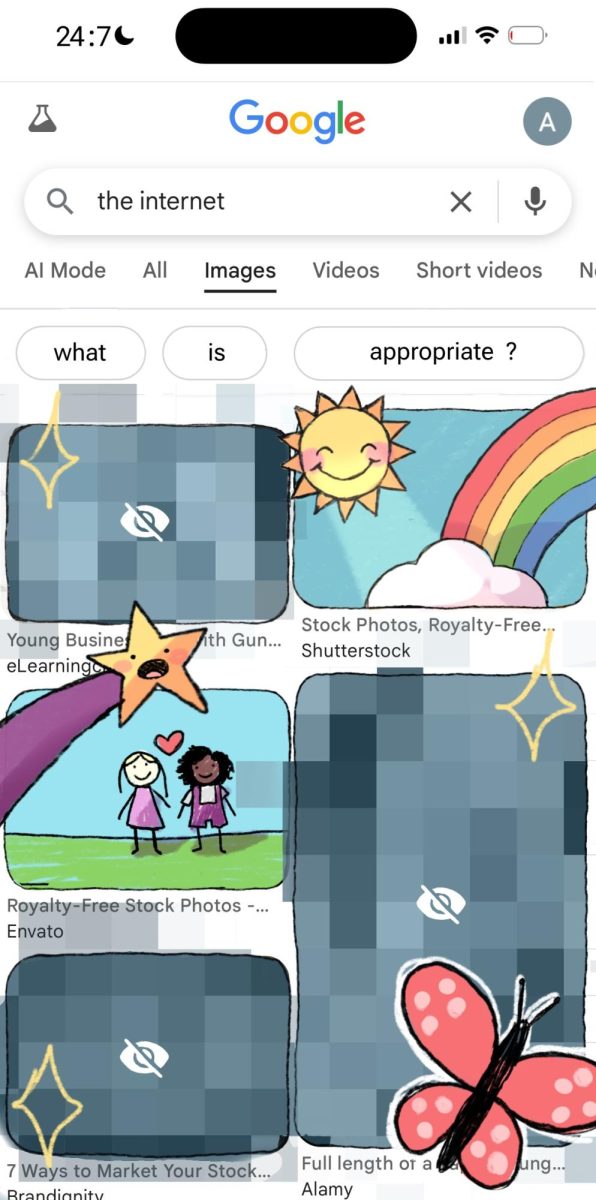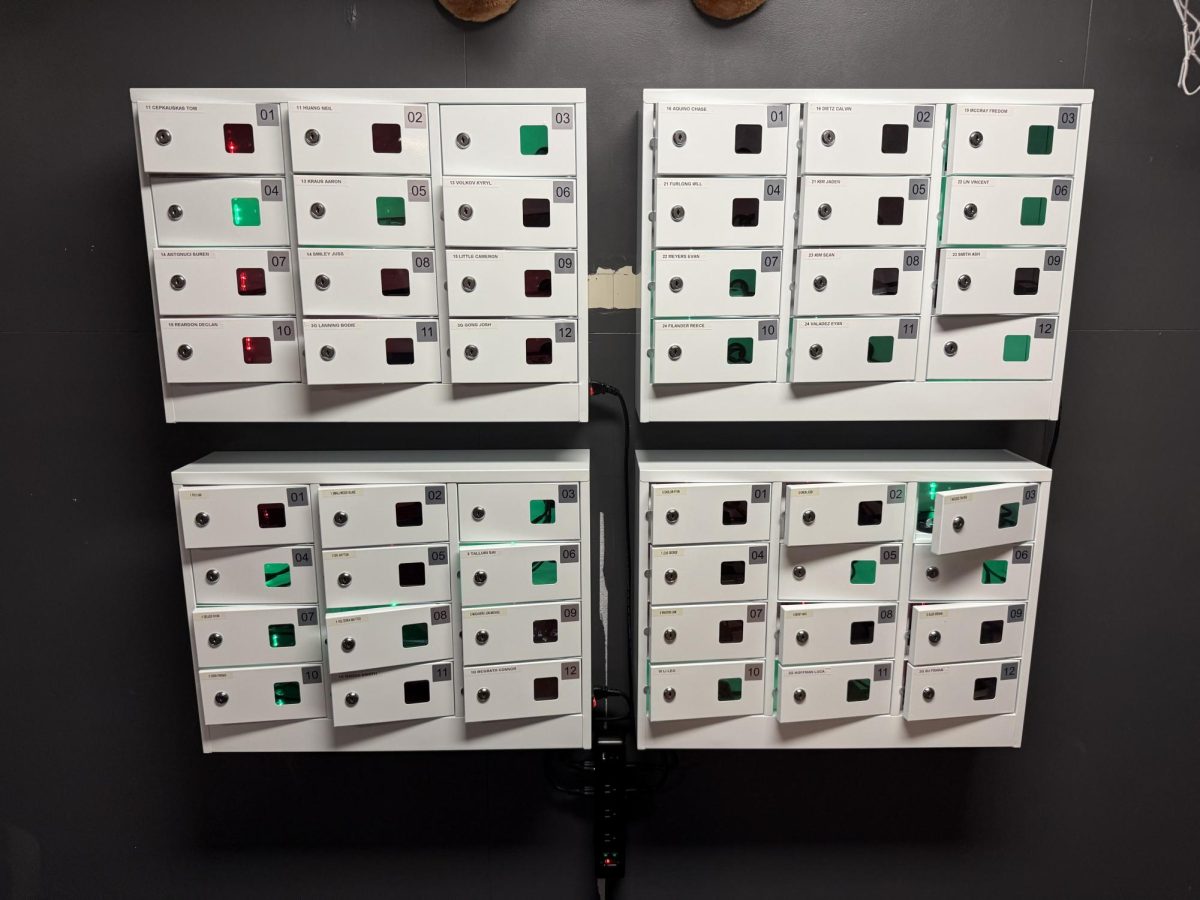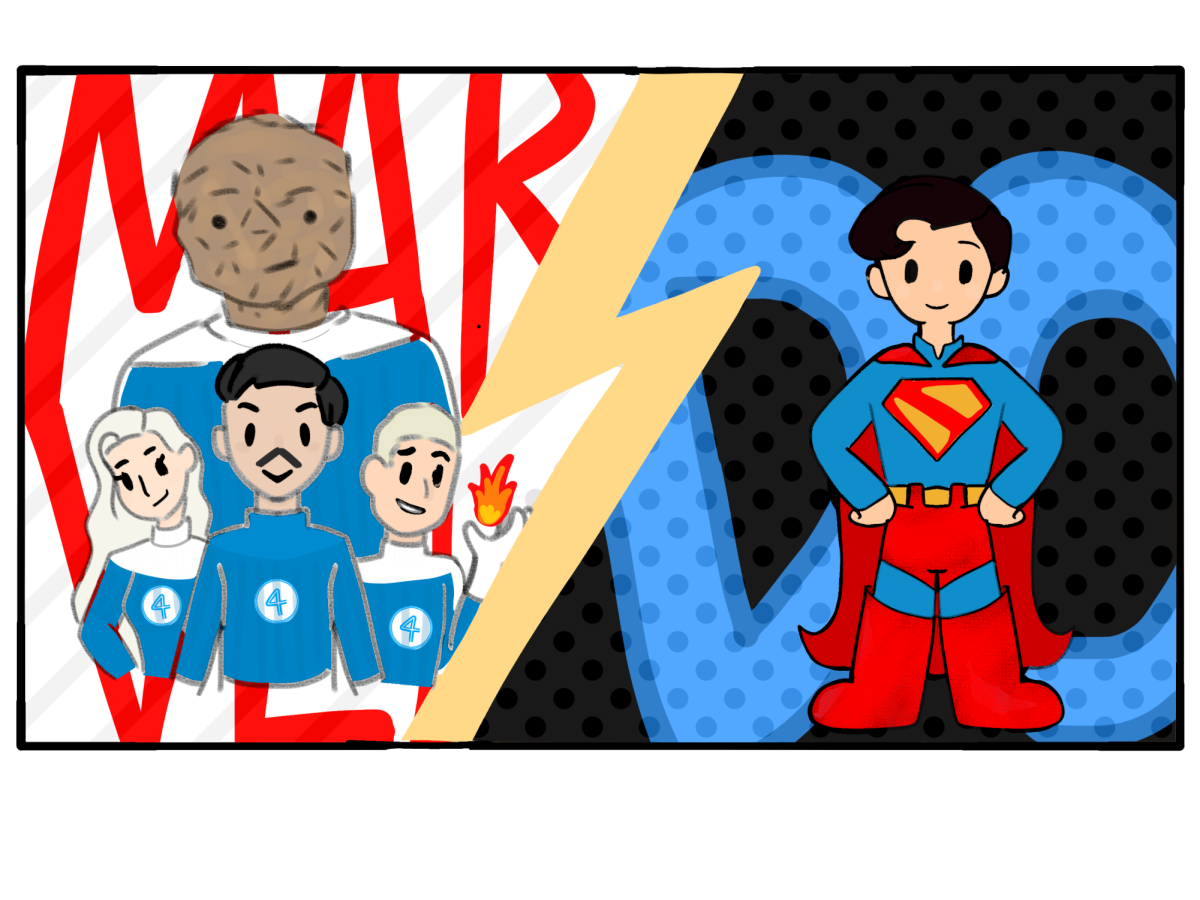Mental health speaker challenges students to stand up and speak out
Media: Faisal Choudhri ’24
Minding Your Mind speaker Kelly, who prefers to go by her first name, shares her story about persevering through an eating disorder.
Students Advocating for Mental Health, Hill’s student-led mental health committee, hosted a guest speaker, Kelly, from Minding Your Mind.
Minding Your Mind is an organization whose mission is to provide mental health education to teens and young adults, parents, teachers, and school administrators with a goal of destigmatizing mental health issues and ending destructive behaviors associated with them.
In an all-school assembly on January 25, Kelly shared her story about eating disorders and substance abuse.
Hailing from Reading, PA, Kelly, whose last name remains undisclosed for privacy reasons, grew up in a loving family, with everything that she needed and wanted. Yet, from the age of four, she felt uncomfortable in her own skin.
“Life felt like I was wearing a jacket two sizes too small,” Kelly explained.
Seeking “the perfect body”, Kelly struggled with an eating disorder for two years. While she was struggling, she smiled, hiding her true feelings. On the outside, it looked like everything was okay, but on the inside, Kelly felt alone and lost.
Consequently, she sought comfort. In 8th grade, she was offered drugs and alcohol for the first time, and although she knew the right answer was no, she said yes, because she didn’t feel she was worth it anymore.
After acquiring many criminal charges and jeopardizing her chance of graduating from high school, a decision was made in a Reading Courthouse on March 15, 2012 to send Kelly to a drug and alcohol treatment facility.
When she received help, Kelly realized that she wasn’t alone after all, also while learning how to be okay with her thoughts and feelings. With the help of her guidance counselor, who saved her life, she was able to graduate high school and later receive her associate and bachelor’s degrees.
“The number one thing that changed my life was to talk about it,” Kelly said.
Now, she wants to share her story to help de-stigmatize mental health.
“I want to normalize talking about these things,” Kelly expressed. “The more we talk about this, the more access to resources we will have.”
This is exactly the mission of SAMH. Co-founders John Ju’23 and Cecile Wegman’23, who is also a co-chair, as well as co-chair Rosa Rodriguez ’23, stated in a joint interview, “Students Advocating for Mental Health is an action-oriented student group dedicated to raising mental health awareness and improving the mental wellbeing of our entire community.”
Founded in the summer of 2020, SAMH has grown since then. They have acquired many new members and had the opportunity to host more events and speakers.
This year, they have hosted several panels including a burnout and time management panel, in addition to numerous other speakers. While most recent speakers have been from Minding Your Mind because this organization is highly favored by the counseling office, there have been others such as Nathan Harmon, Maris Degener, and Ashley Bendiksen who are not associated with Minding Your Mind.
Nonetheless, SAMH and the Counseling Office work together to host speakers who can share their story and leave a powerful message that resonates with students.
Ju, Wegman, and Rodriguez elaborated, “As our speaker was in the middle of the day, we didn’t feel it was appropriate for students to hear a super deep talk and then return to classes as usual, so we appreciated Kelly’s ability to reflect on her substance abuse journey and share her advice for young students going through hardship while still maintaining a strong message of seeking help and speaking out.”
Some students would agree that Kelly’s message was inspiring.
“It felt very relatable and very real,” Lillian Zvarick ’26 said. “I felt like Kelly made it clear that people aren’t alone if they’re having problems with their eating.”
In closing, Kelly urged students to pay attention to their friends and to say something if they see an abnormal change in their friends’ behavior.
“I need you to be willing to save your friend’s life, not your friendship,” Kelly concluded
























